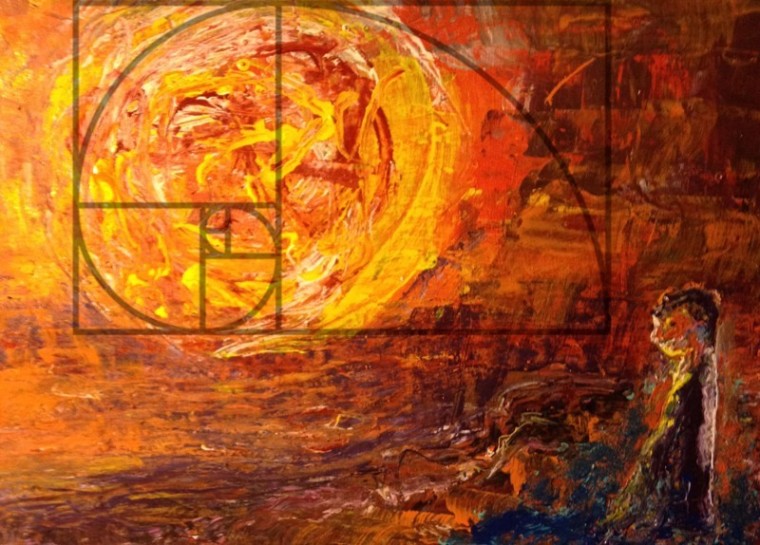
I recently remembered when I was told that curiosity was once considered a sin. It can be found in the writings of Thomas Aquinas. I come to this information as a protestant. I do not even know if this is still canon. All I know is that it piques my own curiosity.
In Question 167 of the Summa Theologiae, Thomas Aquinas addresses how curiosity can become a sin. Application of the knowledge curiosity unearths is the deciding factor. Can discovered knowledge be applied to assist others, to build them up. Or, does this knowledge lead us to degrade ourselves and bring others to fault.
The Curiosity of Frankenstein
This deciding factor needs to be unpacked further. When it comes to an example on the sin of curiosity Mary Shelly’s Victor Frankenstein is definitely curious, but, is it curiosity as sin?
Frankenstein desired control and mastery of the elements of creation. Curiosity is not sin when the application of the knowledge is used for the good of others. The tragedy of Shelly’s modern prometheus is that Frankenstein’s actions towards the Creature ostracise him.
The Creature becomes an outcast, never finding community. Frankenstein has no goal other than knowledge and application. Foolish and unthinking, unable to see beyond his own desires. Even when Frankenstein agrees to make a partner for his Creature fear of their progeny only leads to bloody retribution.
Criticisms are asked of those scientists who rarely think of the application only the journey. Oppenheimer defended the quest for nuclear fission by saying the science was sweet. Nobel, yes the same Nobel of the Nobel Peace Prize invented the means for modern artillery and arms. The Peace Prize is often seen as a way for Nobel to assuage his guilt.
In the middle of the ‘thing’ we are going through some claim that the current pandemic originates from scientific research. This desire for a conspiracy is a form of curiosity as well. People are out there searching for answers. Not because they are searching for truth but they want certainty and a scapegoat to blame.
Wonder, Philosophy and Humility
Wonder is seen as the beginning of philosophy the search for truth. Aristotle saw the end of this search to be god. That which is true and beautiful. Or in Anslem’s words “a being than which nothing greater can be conceived”.
For Pascal it is admiration when you experience that which reason cannot explain. Where the infinite and finite are mixed together. How do you approach it? Descartes suggests we approach the infinite geometrically. Wheels within wheels? Pi cannot be fixed to decimal value. No wonder we marvel at it.
In the face of such grandeur we are supposed to be humbled. In the light of the gospel that elevates the care of our neighbour to be considerate. A curiosity which seeks to apply knowledge to gain mastery, power, or worse, is a deadly thing.
We can gain mastery over others. We have seen many take that mastery in hand recently. These people seek to gain or keep power for their own sake. To stand proudly above others. Their arrogance is clearly seen, even if they cannot see it. These people talk of liberty and freedom but it is only their liberty they seek to uphold and not the liberty of all.
At the same time others lean towards scandal and conspiracy theories. These opinions deny the other due to their ethnicity, standing or class. We find ourselves lying in wait at our neighbours door, seeking supposed evil deeds on the innocent. The power and mastery elevates us while denigrating others.
Our Response is Geometry
Curiosity is not supposed to lead us to mastery but to wonder and admiration. At least that is what Pascal, Aristotle, Anslem and Descartes suggest. Shelly’s Frankenstein’s curiosity began as childhood wonder at the way in which creation appears interconnected. He began with wonder, but without any guidance that was able to stand in the way of his application.
In this age that science has wrought we are still vulnerable to that thing which confines many in isolation. A small thing has laid low the globe killing tens of thousands. Can you not find the wonder in this? Despite all that we have discovered and the mastery we have at our fingertips we are still humbled by a virus.
Surely by now we have learned the overwhelming power that is exponential growth. The Fibonacci Sequence that is mirrored in pine cones, seashells and sunflowers. All quietly reminding us of a tidal wave (also Fibonacci) that was always just a matter of time. In the face of this Descartes advice to approach wonder geometrically is wise.

Phillip Hall has been too long in Melbourne to see AFL in the same light as those back in Fremantle. East Fremantle born and bred, he would love to see the Dockers back in the eight. But would settle for just beating West Coast twice a year.